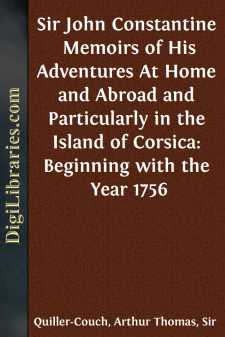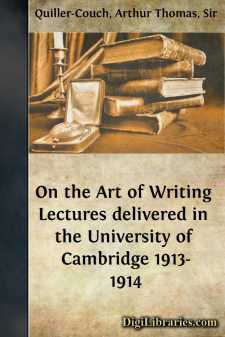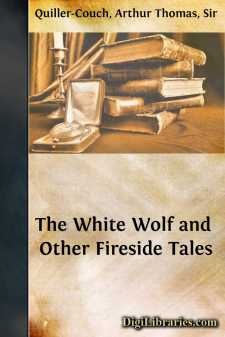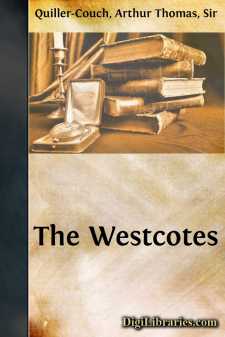Categories
- Antiques & Collectibles 13
- Architecture 36
- Art 48
- Bibles 22
- Biography & Autobiography 813
- Body, Mind & Spirit 142
- Business & Economics 28
- Children's Books 17
- Children's Fiction 14
- Computers 4
- Cooking 94
- Crafts & Hobbies 4
- Drama 346
- Education 46
- Family & Relationships 57
- Fiction 11829
- Games 19
- Gardening 17
- Health & Fitness 34
- History 1377
- House & Home 1
- Humor 147
- Juvenile Fiction 1873
- Juvenile Nonfiction 202
- Language Arts & Disciplines 88
- Law 16
- Literary Collections 686
- Literary Criticism 179
- Mathematics 13
- Medical 41
- Music 40
- Nature 179
- Non-Classifiable 1768
- Performing Arts 7
- Periodicals 1453
- Philosophy 64
- Photography 2
- Poetry 896
- Political Science 203
- Psychology 42
- Reference 154
- Religion 513
- Science 126
- Self-Help 84
- Social Science 81
- Sports & Recreation 34
- Study Aids 3
- Technology & Engineering 59
- Transportation 23
- Travel 463
- True Crime 29
Sort by:
CHAPTER I. OF THE LINEAGE AND CONDITION OF SIR JOHN CONSTANTINE. "I have laboured to make a covenant with myself, that affection may not press upon judgment: for I suppose there is no man, that hath any apprehension of gentry or nobleness, but his affection stands to a continuance of a noble name and house, and would take hold of a twig or twine-thread to uphold it: and yet time hath his...
more...
PROLOGUE. A week ago, my friend the Journalist wrote to remind me that once upon a time I had offered him a bed in my cottage at Troy and promised to show him the beauties of the place. He was about (he said) to give himself a fortnight's holiday, and had some notion of using that time to learn what Cornwall was like. He could spare but one day for Troy, and hardly looked to exhaust its...
more...
"Q." A year or two ago it was observed that three writers were using the curiously popular signature "Q." This was hardly less confusing than that one writer should use three signatures (Grant Allen, Arbuthnot Wilson, and Anon), but as none of the three was willing to try another letter, they had to leave it to the public (whose decision in such matters is final) to say who is Q to it....
more...
Chapter I. THE BEACH. A coach-and-six, as a rule, may be called an impressive Object.But something depends on where you see it. Viewed from the tall cliffs—along the base of which, on a strip of beach two hundred feet below, it crawled between the American continent and the Atlantic Ocean—Captain Oliver Vyell's coach-and-six resembled nothing so nearly as a black-beetle. For that matter the...
more...
THE BLUE PAVILIONS. TO A FORMER SCHOOLFELLOW. MY DEAR —, I will not write your name, for we have long been strangers; and I, at any rate, have no desire to renew our friendship. It is now ten years and more from the end of that summer term when we shook hands at the railway-station and went east and west with swelling hearts; and since then no report has come of you. In the meantime you may have...
more...
LECTURE I. INAUGURAL Wednesday, January 29, 1913 In all the long quarrel set between philosophy and poetry I know of nothing finer, as of nothing more pathetically hopeless, than Plato's return upon himself in his last dialogue 'The Laws.' There are who find that dialogue (left unrevised) insufferably dull, as no doubt it is without form and garrulous. But I think they will read it with...
more...
"Yes, sir," said my host, the quarryman, reaching down the relics from their hook in the wall over the chimneypiece; "they've hung here all my time, and most of my father's. The women won't touch 'em; they're afraid of the story. So here they'll dangle, and gather dust and smoke, till another tenant comes and tosses 'em out o' doors for rubbish. Whew!...
more...
POETRY By Arthur Quiller-Couch "Trust in good verses then: They only shall aspire, When pyramids, as men Are lost i'the funeral fire." As the tale is told by Plato, in the tenth book of his Republic, one Er the son of Arminius, a Pamphylian, was slain in battle; and ten days afterwards, when they collected the bodies for burial, his body alone showed no taint of corruption. His relatives,...
more...
I.—THE TALE OF SNORRI GAMLASON In the early summer of 1358, with the breaking up of the ice, there came to Brattahlid, in Greenland, a merchant-ship from Norway, with provisions for the Christian settlements on the coast. The master's name was Snorri Gamlason, and it happened that as he sailed into Eric's Fiord and warped alongside the quay, word was brought to him that the Bishop of Garda...
more...
CHAPTER I THE WESTCOTES OF BAYFIELD A mural tablet in Axcester Parish Church describes Endymion Westcote as "a conspicuous example of that noblest work of God, the English Country Gentleman." Certainly he was a typical one. In almost every district of England you will find a family which, without distinguishing itself in any particular way, has held fast to the comforts of life and the respect...
more...











